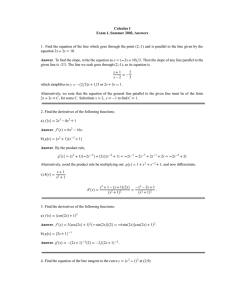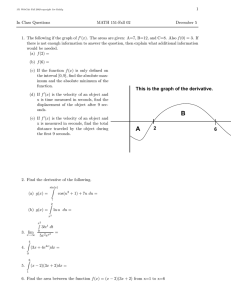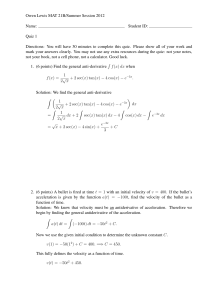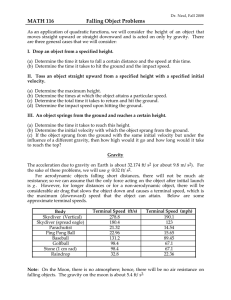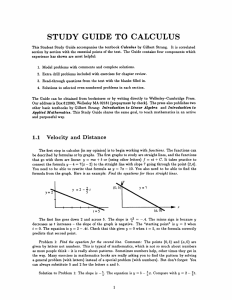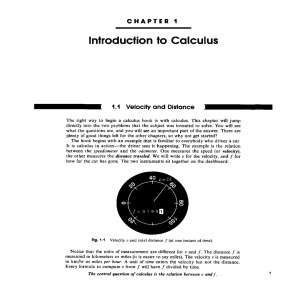Calculus I Exam 1, Fall 2002, Answers
advertisement
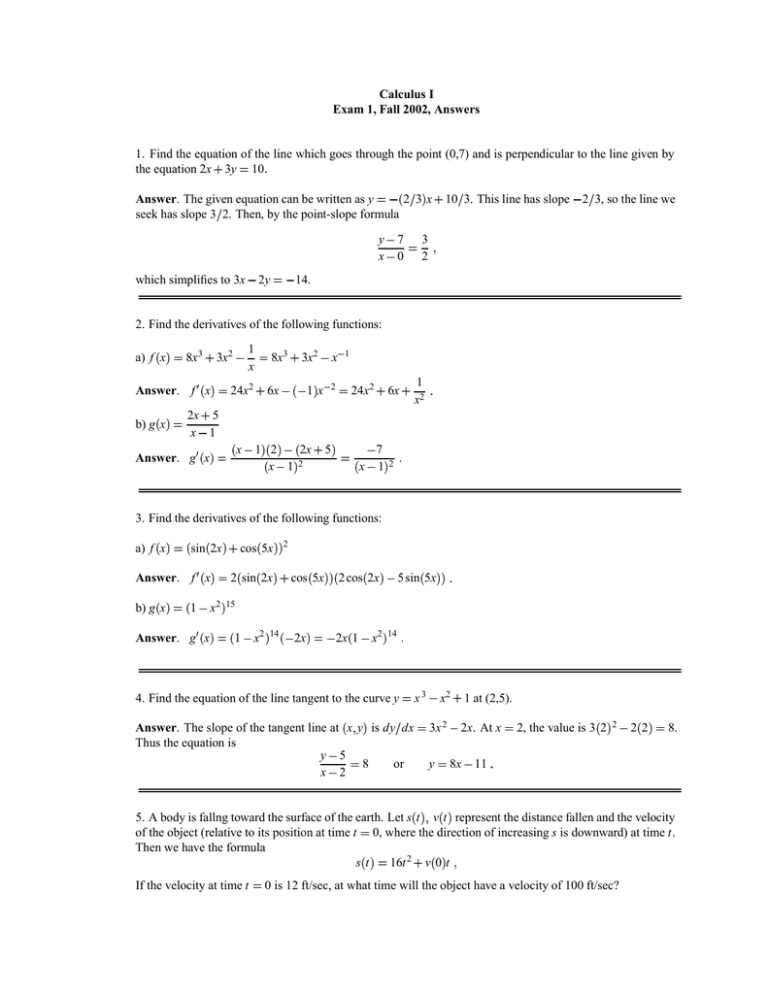
Calculus I Exam 1, Fall 2002, Answers 1. Find the equation of the line which goes through the point (0,7) and is perpendicular to the line given by the equation 2x 3y 10 Answer. The given equation can be written as y 2 3x seek has slope 3 2. Then, by the point-slope formula which simplifies to 3x 2y y x 10 3. This line has slope 2 3, so the line we 7 3 0 2 14. 2. Find the derivatives of the following functions: a) f x 8x3 3x2 Answer. f x 1x 24x2 x 6x 1 x 8x3 3x2 2 1 24x2 1 x2 6x 2xx 15 x 1 2 2x 5 7 Answer. g x x 1 x 1 b) g x 2 2 3. Find the derivatives of the following functions: sin 2x cos 5x Answer. f x 2 sin 2x cos 5x 2 cos 2x 5 sin 5x b) g x 1 x Answer. g x 1 x 2x 2x 1 x 2 a) f x 2 15 2 14 2 14 4. Find the equation of the line tangent to the curve y x3 Answer. The slope of the tangent line at x y is dy dx Thus the equation is y 5 8 or x 2 x2 3x 2 y 1 at (2,5). 2x. At x 8x 11 2 2 2, the value is 3 2 2 8. 5. A body is fallng toward the surface of the earth. Let s t v t represent the distance fallen and the velocity of the object (relative to its position at time t 0, where the direction of increasing s is downward) at time t. Then we have the formula st 16t 2 v 0 t If the velocity at time t 0 is 12 ft/sec, at what time will the object have a velocity of 100 ft/sec? Answer. From the hypotheses, v 0 12, so the equation of motion is s t vt ds dt The velocity is 100 ft/sec at the time t for which 100 32t 12 32t 12. Thus t 32t 12t. Then 88 32 11 4 seconds.
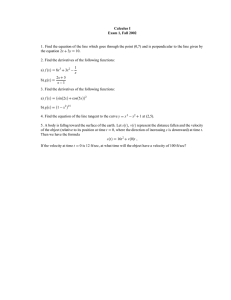
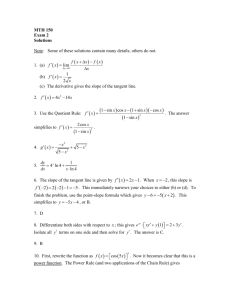
![Homework 12: Due Wednesday 7/9/14 on the interval [−1, 2]?](http://s2.studylib.net/store/data/011229144_1-0554531fc36f41436ee2a5dab6cfe618-300x300.png)


